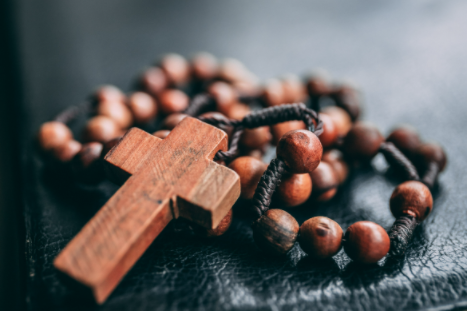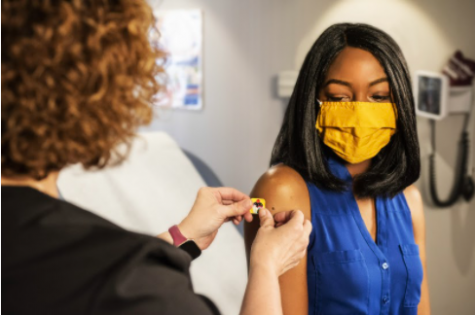Should religious exemptions for vaccine mandates be allowed?
The difficulty of determining what constitutes a sincere religious belief

Photo courtesy of James Coleman
As more people become eligible for the vaccine, employers require employees to take the Covid vaccine. Although we all want the pandemic to be over, one of the reasons people are avoiding the vaccine is their religious beliefs. Despite it not being an all-encompassing mandate, several states have made vaccinations mandatory for workers. As a result, those who oppose the vaccine for religious reasons have called it a violation of the First Amendment. However, in the 1905 case Jacobson v. Massachusetts during the smallpox epidemic, the Supreme Court ruled that the vaccine mandate did not violate his autonomous bodily integrity. That decision has yet to be overturned. They reasoned that “Americans do not have a constitutional right to harm their fellow citizens by refusing a vaccine,” which seems to apply today. Unlike in 1905, the Covid vaccine isn’t 100% effective, as vaccinated people can still get the virus yet are three times less likely to test positive for Covid. Since the mandate isn’t strictly against the constitution, the matter remains whether or not it should be a personal choice.
However, one concern is that people are merely using this exemption to get around the mandate. This insincerity could lead to the demolition of the exemption, even for those that hold genuine religious beliefs that disagree with the vaccine. It may be beneficial to test for sincerity, although it’s difficult to do, even if the person belongs to a major religion. While the heads of major organized religious groups have not come out against the vaccine themselves, there is still some ambiguity about their stances. For instance, Pope Francis encouraged Catholics to get their vaccines, but the church still provides religious exemption forms.

According to the National Conference of State Legislatures, each state decides what vaccine exemptions they accept, whether it be religious or philosophical. All states, except 6, allow religious exemptions. In Virginia, a religious exemption is allowed in Virginia because “there is a provision in the statute that allows parents to exempt their children from vaccination if it contradicts their sincere religious beliefs”. Even so, universities in Virginia, such as GMU, require proof of a Covid vaccination unless a student has demonstrated an approved medical or religious exemption.
All in all, the problem is the perceived discriminatory act of abolishing a religious vaccine exemption and if it outweighs putting coworkers in jeopardy in the workplace. Not to mention, there’s concern over using that claim insincerely, especially when employers aren’t supposed to challenge a religious belief. Either way, companies, such as United Airlines, have denied some exemption requests, won’t allow unvaccinated employees into the workplace, while the exempted employees will be placed on unpaid leave until the pandemic abates. It has created a gray area for religious beliefs in the workplace, where employers are now deciding if a person’s beliefs are sincere enough. If a person can provide evidence that their beliefs are sincere in a verifiable manner, then they should be allowed an exemption, therefore protecting the legal precedent. The repercussions of these decisions will last much longer than the pandemic itself.




